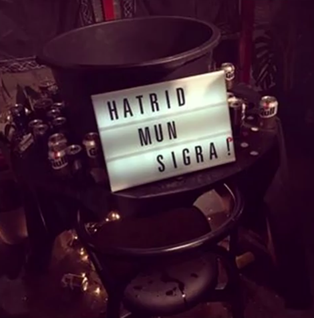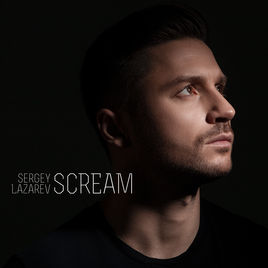Belarus participated in the Eurovision Song Contest 2010 with the song "Butterflies" written by Maxim Fadeev, Robert Wells and Malka Chaplin. The song was performed by the group 3+2 featuring Robert Wells, who were internally selected by the Belarusian broadcaster National State Television and Radio Company of the Republic of Belarus (BTRC) to represent the nation at the 2010 contest in Oslo, Norway after broadcaster All-National TV (ONT), which was to take over BTRC, failed to receive EBU membership. 3+2 and the song "Far Away" were initially announced as the Belarusian entry on 25 February 2010, however the band opted to withdraw their song and the replacement entry, "Butterflies", was announced on 19 March 2010.
Malta participated in the Eurovision Song Contest 2013 with the song "Tomorrow" written by Boris Cezek and Dean Muscat. The song was performed by Gianluca. The Maltese entry for the 2013 contest in Malmö, Sweden was selected through the national final Malta Eurovision Song Contest 2013, organised by the Maltese broadcaster Public Broadcasting Services (PBS). The competition consisted of a semi-final round and a final, held on 1 and 2 February 2013, respectively, where "Tomorrow" performed by Gianluca eventually emerged as the winning entry after scoring the most points from a seven-member jury and a public televote.
Belarus participated in the Eurovision Song Contest 2013 with the song "Solayoh" written by Marc Paelinck and Martin King. The song was performed by Alyona Lanskaya. The Belarusian entry for the 2013 contest in Malmö, Sweden was selected through a national final organised by the Belarusian broadcaster National State Television and Radio Company of the Republic of Belarus (BTRC). The national final consisted of ten competing acts participating in a televised production where "Rhythm of Love" performed by Alyona Lanskaya was initially selected as the winner following the combination of votes from a jury panel and public televoting, however the singer opted to withdraw her song and the replacement entry, "Solayoh", was announced on 7 March 2013.
Moldova participated in the Eurovision Song Contest 2013 with the song "O mie" written by Iuliana Scutari and Pasha Parfeny. The song was performed by Aliona Moon. Songwriter Pavel Parfeni represented Moldova in the Eurovision Song Contest 2012 with the song "Lăutar" where he placed eleventh in the grand final of the competition. The Moldovan broadcaster TeleRadio-Moldova (TRM) organised the national final O melodie pentru Europa 2013 in order to select the Moldovan entry for the 2013 contest in Malmö, Sweden. 49 artists and 126 songs competed to represent Moldova in Malmö, with 24 artists and songs being shortlisted to participate in the televised national final. After two semi-finals and a final which took place in March 2013, "A Million" performed by Aliona Moon emerged as the winner after gaining the most points following the combination of votes from a jury panel and a public televote. The song was later translated from English to Romanian for the Eurovision Song Contest and was titled "O mie". This was the first time that the Moldovan song was performed entirely in the Romanian language at the Eurovision Song Contest.
Belarus participated in the Eurovision Song Contest 2014 with the song "Cheesecake" written by Yuriy Vashchuk and Dmitry Novik. The song was performed by Teo, which is the artistic name of singer Yuriy Vashchuk. The Belarusian entry for the 2014 contest in Copenhagen, Denmark was selected through a national final organised by the Belarusian broadcaster National State Television and Radio Company of the Republic of Belarus (BTRC). The national final consisted of fourteen competing acts participating in a televised production where "Cheesecake" performed by Teo was selected as the winner following the combination of votes from a jury panel and public televoting.
Belarus participated in the Eurovision Song Contest 2015 with the song "Time" written by Uzari, Gerylana and Maimuna. The song was performed by Uzari and Maimuna. The Belarusian entry for the 2015 contest in Vienna, Austria was selected through a national final organised by the Belarusian broadcaster National State Television and Radio Company of the Republic of Belarus (BTRC). The national final consisted of fifteen competing acts participating in a televised production where "Time" performed by Uzari and Maimuna was selected as the winner following the combination of votes from a jury panel and public televoting.
Belarus participated in the Eurovision Song Contest 2017 with the song "Story of My Life" written by Arciom Lukjanienka. The song was performed by the band Naviband. The Belarusian entry for the 2017 contest in Kyiv, Ukraine was selected through a national final organised by the Belarusian broadcaster National State Television and Radio Company of the Republic of Belarus (BTRC). The national final consisted of fourteen competing acts participating in a televised production where "Historyja majho žyccia" performed by Navi was selected as the winner following the combination of votes from a jury panel and public televoting. The song was later retitled as "Story of My Life" for the Eurovision Song Contest, while the band was renamed as Naviband.
Estonia participated in the Eurovision Song Contest 2019 with the song "Storm" written by Stig Rästa, Vallo Kikas, Victor Crone and Fred Krieger. The song was performed by Victor Crone. The Estonian broadcaster Eesti Rahvusringhääling (ERR) organised the national final Eesti Laul2019 in order to select the Estonian entry for the 2019 contest in Tel Aviv, Israel. The national final consisted of three shows: two semi-finals and a final. Twelve songs competed in each semi-final and six from each semi-final as determined by a jury panel and public vote qualified to the final. In the final, the winner was selected over two rounds of voting. In the first round, a jury panel and a public vote selected the top three to qualify to the superfinal. In the superfinal, "Storm" performed by Victor Crone was selected as the winner entirely by a public vote.
Poland participated in the Eurovision Song Contest 2019 with the song "Fire of Love " written by Nadia Dalin, Sonia Krasny, Allan Rich and Jud Friedmann. The song was performed by the group Tulia. In January 2019, the Polish broadcaster Telewizja Polska (TVP) announced that the Polish entry for the 2019 contest in Tel Aviv, Israel would be selected through an internal selection. Tulia was announced as the Polish entrant on 15 February 2019, while the song "Fire of Love " was presented to the public on 8 March 2019.
Serbia participated in the Eurovision Song Contest 2019 with the song "Kruna" written and performed by Nevena Božović who had previously represented Serbia in the Junior Eurovision Song Contest in 2007 and in the Eurovision Song Contest in 2013 as part of the group Moje 3. The Serbian national broadcaster, Radio Television of Serbia (RTS) organised the national final Beovizija2019 in order to select the Serbian entry for the 2019 contest in Tel Aviv, Israel. The national final consisted of three shows: two semi-finals on 27 and 28 February 2019 and a final on 3 March 2019. Twelve entries competed in each semi-final where the top six qualified to the final from each semi-final following the combination of votes from a five-member jury panel and a public televote. The twelve qualifiers competed in the final which resulted in "Kruna" performed by Nevena Božović as the winner following the combination of votes from a five-member jury panel and a public televote.
The Czech Republic participated in the Eurovision Song Contest 2019 with the song "Friend of a Friend" written by Jan Steinsdoerfer, Mikołaj Trybulec and Albert Černý. The song was performed by the band Lake Malawi. The Czech broadcaster Česká televize (ČT) organised the national final Eurovision Song CZ 2019 in order to select the Czech entry for the 2019 contest in Tel Aviv, Israel. Eight entries competed in the national final and "Friend of a Friend" performed by Lake Malawi was announced as the winner on 28 January 2019 following the combination of votes from an eleven-member international jury panel and a public vote.
Belarus participated in the Eurovision Song Contest 2019 with the song "Like It" written by Yulia Kireeva, Viktor Drobysh and Zinaida Kupriyanovich. The song was performed by Zena, which is the artistic name of singer Zinaida Kupriyanovich. The Belarusian entry for the 2019 contest in Tel Aviv, Israel was selected through the national final Natsionalny Otbor, which was organised by the Belarusian broadcaster National State Television and Radio Company of the Republic of Belarus (BTRC). The national final consisted of ten competing acts participating in a televised production where a jury panel selected "Like It" performed by Zena as the winner.

"Storm" is a song performed by Swedish singer Victor Crone. It was co-written/produced by Electronic Producer duo Kisma. The song represented Estonia at the Eurovision Song Contest 2019 in Tel Aviv. It was performed during the first semi-final on 14 May 2019, and qualified for the final, where it finished in 20th place with 76 points.

"Love Is Forever" is a song by Danish singer Leonora that was Denmark's entry at the Eurovision Song Contest 2019 in Tel Aviv. It is the first multilingual entry from Denmark in Eurovision and also the first Danish entry with Danish lyrics since the removal of the language rule in 1999. It was performed at the second semi-final on 16 May 2019, and qualified for the final, where it placed 12th with 120 points.

"Hatrið mun sigra" is a song by Icelandic band Hatari. It won Söngvakeppnin 2019 and finished 10th at the Eurovision Song Contest 2019 in Tel Aviv, Israel. The song was the first Eurovision Song Contest entry to be performed in Icelandic since 2013. An extended version of the song is included in the band's debut studio album, Neyslutrans (2020).

"Truth" is a song by Azerbaijani singer Chingiz Mustafayev. It represented Azerbaijan at the Eurovision Song Contest 2019 in Tel Aviv, Israel. It was performed during the second semi-final held on 16 May 2019, and qualified for the final, where it finished in eighth place with 302 points.

"Scream" is a song by Russian singer Sergey Lazarev. It was Russia's entry at the Eurovision Song Contest 2019 in Tel Aviv, Israel. It was performed during the second semi-final on 16 May, and qualified for the final, where it finished in third place with 370 points.
Belarus originally planned to participate in the Eurovision Song Contest 2020 with the song "Da vidna" written by Uladzislaŭ Paškievič, Valeryja Hrybusava and Mikita Najdzionaŭ. The song was performed by the band VAL. The Belarusian entry for the 2020 contest in Rotterdam, Netherlands was selected through the national final Natsionalny Otbor, which was organised by the Belarusian broadcaster National State Television and Radio Company of the Republic of Belarus (BTRC). The national final consisted of twelve competing acts participating in a televised production where "Da vidna" performed by VAL was selected as the winner following the combination of votes from a jury panel and public televoting.
The United Kingdom participated in the Eurovision Song Contest 2021 with the song "Embers" written by James Newman, Conor Blake, Danny Shah, Tom Hollings and Samuel Brennan. The song was performed by James Newman, who was internally selected by the British broadcaster BBC to represent the United Kingdom at the 2021 contest in Rotterdam, Netherlands after he was due to compete in the 2020 contest with "My Last Breath" before the event's cancellation. Newman was announced as the British entrant on 19 February 2021, while the song "Embers" was presented to the public on 11 March 2021.

"Silent Storm" is a song by Norwegian singer and songwriter Carl Espen, released as a single on 18 February 2014. It represented Norway in the Eurovision Song Contest 2014 in Copenhagen, Denmark. It was performed during the second semi-final on 8 May 2014, and qualified for the final. It placed sixth in the semi-final with 77 points and finished in eighth place with 88 points overall.






